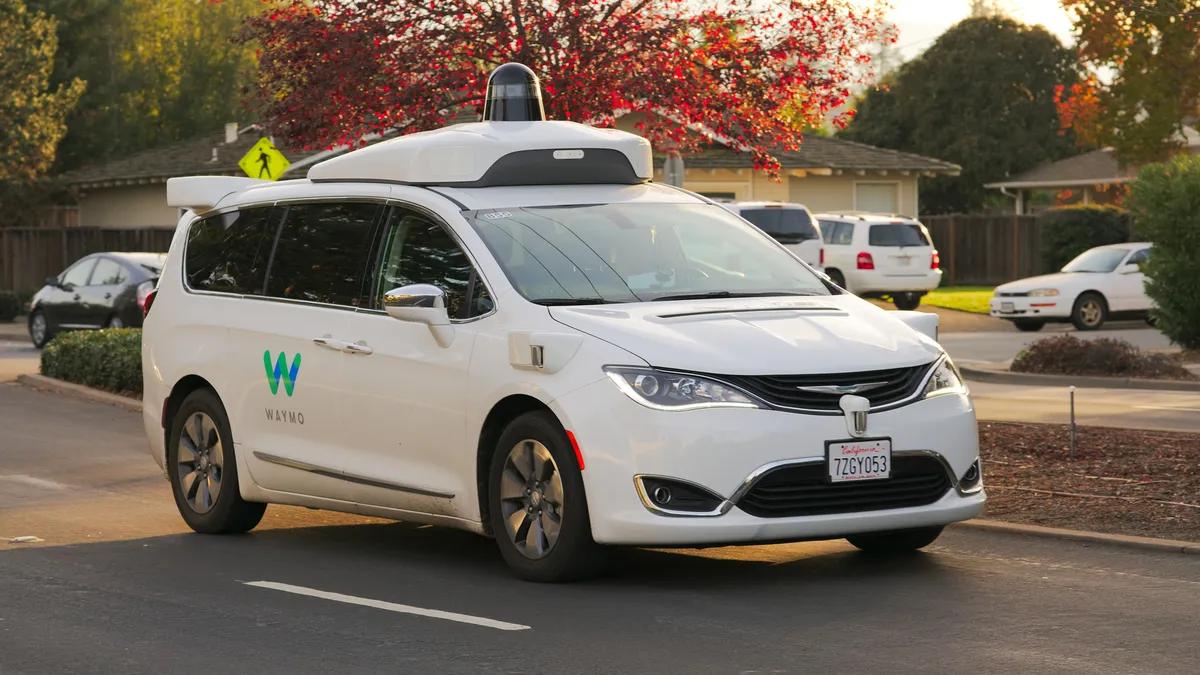Dive Brief:
- Deloitte recently released its 2019 Global Automotive Consumer Study, which found consumer trust in autonomous vehicles (AV) is lagging behind the automotive industry's pace of investment in and development of the technology.
- The study, which surveyed more than 25,000 respondents across 20 countries, found that 50% of U.S. respondents — more or less on par with last year's 47% — do not believe AVs will be safe, with similar unwavering sentiments felt among consumers in China, Japan, South Korea, India and Germany.
- Meanwhile, the number of U.S. respondents who say they use ride-hailing "occasionally" increased from 22% in 2017 to 46% in the latest study. The study also found that younger consumers are more likely to ditch vehicle ownership than older generations — 60% of Gen Y/Z respondents in Japan in 46% in the U.S. said ride-hailing makes them question whether they need a personal vehicle.
Dive Insight:
In a written analysis on the findings of this study, Deloitte leaders note that mistrust in autonomous vehicles is likely attributed, at least in part, to media coverage of the few AV accidents that have happened so far — most notably the fatal accident in Tempe, AZ involving an Uber vehicle.
In light of these incidents, the study notes most consumers are looking to governments to more heavily regulate autonomous vehicles and associated transportation technologies. The theme of encouraging regulation on the local level was highlighted during a session this week at CES, during which Verizon's VP of Smart Communities Lani Ingram noted the entire economics around vehicles, road maintenance and other associated elements is going to force cities to prioritize regulation. "I don't think we can take as long as we usually do to think about regulation," she said.
However, Ingram also noted consumers may need to lower their expectations of how trustworthy autonomous vehicles are to begin with. "People are assuming that 'autonomous' means 100% safe," she said. "There needs to be some readjustment in the mindset of the citizen."
As automotive companies and local governments work on boosting consumer trust in AVs, there's a positive outlook on vehicle electrification — a step in the right direction to push consumers away from traditional gas and diesel vehicles. In the U.S., 71% of respondents said they'd consider an electrified powertrain for their next vehicle, followed by 63% in Germany and 61% in India. While there's a long road ahead to actually getting those consumers in EVs — and getting cities to invest in proper EV infrastructure — the interest is promising.
Overall, Deloitte concludes, "the mobility revolution is running up against entrenched consumer behavior" — and until industry leaders, including those in government and across the private mobility and automotive sectors, develop ways to encourage new behavior patterns, adoption of AVs will be an uphill battle.












